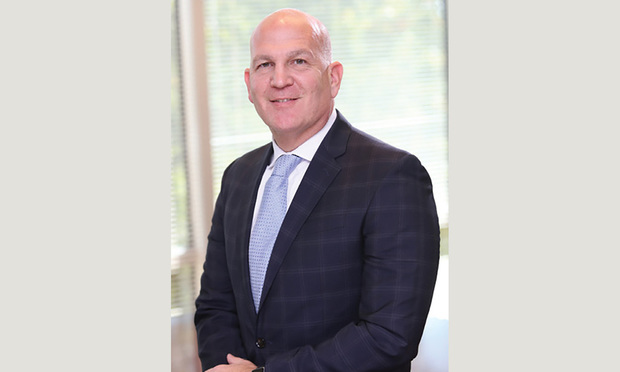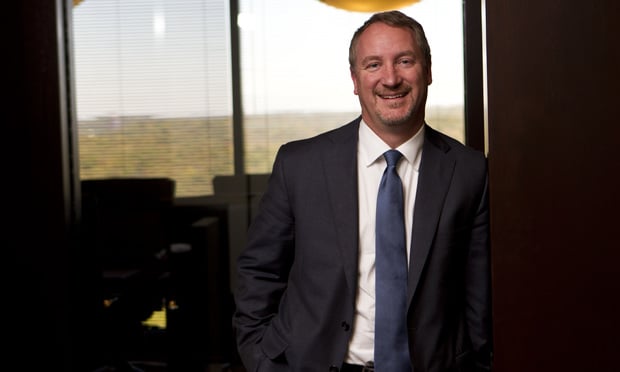When I started my career as a prosecutor in DeKalb County in the mid ’90s, I drafted indictments, negotiated pleas, arraigned defendants and tried cases all without the benefit of email, a cell phone, or even Windows (back then we typed everything into MS-DOS). Since then, I’ve survived Y2K, 9/11 and three months in the Fulton County District Attorney’s Office (enough said). And I’ve seen a lot of innovations outside the courtroom find their way inside, especially e-filing, which saves me time, money and the unnecessary stress of hoping my envelope arrived on time.
Now, in this crisis, we’ve seen necessity breed pragmatism. Chief Justice Melton will forever be remembered for his foresightedness in declaring a statewide judicial emergency. And, while it has taken some counties a bit more time, and maybe a call from the Judicial Qualifications Commission, judges across this state are taking steps to ensure that the rights of criminal defendants are protected, even as they insulate the public, defendants, lawyers and court staff from exposure to COVID-19 by canceling nonessential (noncustodial) court hearings or allowing lawyers to make status announcements by email.
Because most of my clients are not in custody, their nonessential hearings have been continued. However, I have a handful of clients in jail. On Wednesday, I e-filed a bond motion in DeKalb County for one of those clients. After emailing a copy of the motion to the judge’s office, I received an email back setting a telephonic hearing (as I requested) for Thursday afternoon. The prosecutor and I immediately began negotiating a consent bond and at 5 p.m., we were able to come to an agreement to present to the judge. The process, which normally takes weeks of haggling and scheduling before the motion is actually heard, was resolved through email to chambers in a few hours.
I’ve heard similar stories from Fulton County and Cobb County, and they are consistent. Everyone is working together to get things done, and they are doing so efficiently. We are moving cases through emails, conference calls and videoconferencing, and the public is benefiting.
While I am really proud of how efficiently everyone is working together, I am not looking forward to when things go back to “normal.” Normal for me involves a lot of wasted time. At least once a week I drive an hour in traffic (each way) to sit through a calendar that takes a judge an hour to call, just to say, “not guilty.” That’s three hours to speak for three seconds. I am not the only criminal defense lawyer who is frustrated by these lengthy and inefficient hearings—plenty of arraignment calendars have at least a hundred people on them. That is a lot of lawyers driving around.
Thankfully some judges, in some counties, allow lawyers to “waive arraignment,” which means we can file a document that says “not guilty” instead of wasting hours to say it in person. But there is no rule requiring judges to accept a written waiver of arraignment, and when judges do allow it, there’s no consensus on how the process should work.
Because I’ve enjoyed not sitting in hours of traffic, dodging potholes, walking through metal detectors and sitting in courtrooms for hours to literally say “not guilty,” I will be sending letters to the Councils of State and Superior Court Judges asking them to adopt a uniform rule that authorizes lawyers to waive arraignment.
This pandemic has been an expensive lesson in necessity. Just as Windows replaced DOS, emails replaced fax machines, and e-filing has begun to replace mailing in envelopes, arraignment calendars need to give way to a system that spares judges, prosecutors, defendants, and their attorneys from using half their day in court to say two little words.
Noah H. Pines, a partner at Atlanta’s Ross & Pines, heads the firm’s criminal defense and appellate practice.
NOT FOR REPRINT
© 2024 ALM Global, LLC, All Rights Reserved. Request academic re-use from www.copyright.com. All other uses, submit a request to [email protected]. For more information visit Asset & Logo Licensing.


 Noah Pines of Ross & Pines. (Courtesy photo)
Noah Pines of Ross & Pines. (Courtesy photo)







